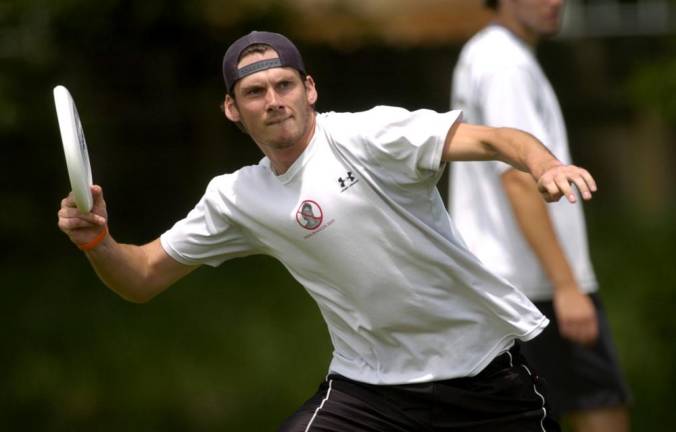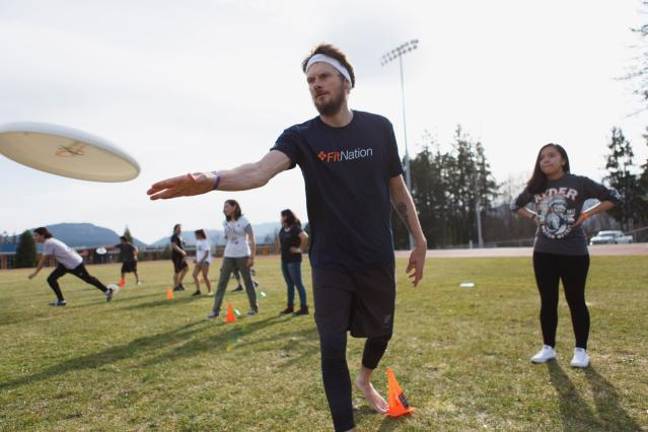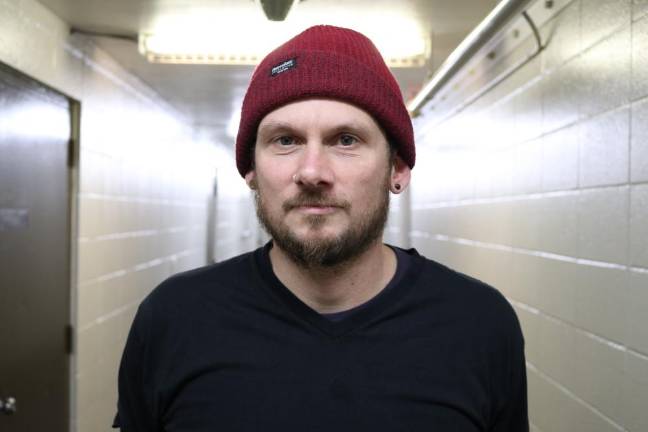Rock bottom and up again
The void, temporarily filled by sports and drugs, was always still there



- “And so the question isn’t why the addiction, but why the pain.” – Dr. Gabor Mate
On February 19, 2018 I walked into Together We Can, a men’s addiction treatment center where my new roommate struggled with meth addiction and had five bullet holes in his chest. I had no idea what to expect. I only knew that I needed something drastic to enforce a change in my life, and I’d be willing to do anything. Three days later, I was ready to leave.
I can see now how scared I was to embark on a new chapter that began with, “I don’t know what I’m doing anymore and I need help.”
Let’s roll it back. Around seven years ago, I was given a direct message that hit me deep, but that I only appreciated when I was ready to receive it. After years of using hangovers as an excuse for being conflictive and difficult in a relationship, the day came when my partner said, “I hear what you’re saying, that the reason you’re being unkind today is a result of you drinking and using cocaine last night. That makes sense, as it always has. But this time I don’t believe that drugs and alcohol are your problem, so I’m no longer accepting your excuse.” Nobody had ever said that to me before. So, what was my problem then?
Growing up, I always felt different. Never good enough. Not smart enough. Unattractive. Shy and boring. Wrong. From a young age, sports had the power to take me away from all that. During lunchtime and recess and after school, I’d go out with my friends and play anything — no adults, no refs, just playing, competing and battling. Eventually I discovered ultimate Frisbee and everything else took a backseat: school, relationships, jobs, family. Things felt good when I was on the field, but when I quit cold turkey, now I had no idea what to do — probably a side effect of being 100-percent locked into one thing for 10 years. There was the huge void again. It was the same void that existed before, and now it was exposed completely.
Drugs and alcohol helped me escape, which like a shiny new toy got my attention. I began noticing I could connect with people. I could be present. People liked me. I wasn’t shy. I had friends. I didn’t always feel shitty about myself, and I could actually feel good. Two birds with one stone. It’s why, when I was given a direct message that my solution was now causing problems, I panicked. Now I just felt depressed and anxious, and I had no solution to that. I felt embarrassed, ashamed and frustrated at myself. Back to how I felt before I discovered my shiny new toy.
The friends who drank and used drugs weren’t able to help me, and the friends who didn’t had no idea what I was going through. So, I isolated. My relationship ended. I was miserable all the time. For months I tried counseling, yoga, self-help books, another relationship, antidepressants, energy healing, even volunteering. Nothing changed the way I felt, and so I inevitably reached out to my only known solution. Only this time it all got worse, much worse.
The thing that saved me on day three at the treatment center, in retrospect, was bringing outside of me what was inside of me. For the first time I told someone that I had no idea what I was doing anymore, and I needed help. It was as if something in the universe was waiting for me to say that, because the person I said it to took it from there. One of my housemates had been at the treatment center for two months longer than me, and was openly speaking about things I kept inside. He struggled with self-acceptance, and was open about it. I felt safe to speak up to him, and he told me he could relate to how I was feeling and that I wasn’t alone. So I found a friend to share with. Vulnerability, such a novel thing for someone who grew up in an all-boys private Catholic school system where if you weren’t an asshole you were abnormal. In high school, vulnerability got me mocked relentlessly, so I learned to keep it inside and pretend. Fear is a subtle foe.
My new friend had an eerily similar life story to me. We both struggled at school, had ADHD, became super athletes in our respective sports, traveled the world on national teams, used alcohol and cocaine, switched to cannabis, went back to alcohol and cocaine, found love through relationships but crashed when they ended, used humor as our go-to attention seeker... the list went on. For the first time I was able to speak candidly, and listen from my soul. I wasn’t alone, and it felt really good. Discovering that I wasn’t the only one with a giant void inside helped me feel less embarrassed.
Because I was able to become vulnerable, all sorts of connection became available. My friend made it safe to say the things that were really going on inside, without judgment. And so I was able to take it from there. Since vulnerability was modeled to me, I was able to begin freely talking about my insecurities to others without fear of being mocked. Because of this I met so many other great people who shared a similar struggle, and we helped each other. We went to AA meetings. We did 12 step work. We got a glimpse into spirituality, rather than religion. We cared about each other. We healed. Encouraged each other. We learned how to forgive ourselves and others and move forward.
Even though the way I’m wired might never change, my perspective has definitely shifted. That drive and motivation I found on the ultimate field — I started to find it in helping others. That became part of my purpose.
Everything I have in my life today, as I’m celebrating two years of sobriety, is a direct result of asking for help and doing the things that help guided me to do. I work with teenagers struggling with addiction. I work with Indigenous youth coaching ultimate Frisbee as part of a reconciliation project. I sponsor others. I’m authentic. I notice when people are struggling and offer my help. I have better relationships with family and friends. Some of my best friends are those I met at the treatment center. Doing the 12 steps was like this Da Vinci code of discovering who I truly was prior to the conditioned narrative that possessed me. Today I know when I’m caught in negative inner narrative and use self-compassion rather than drugs and alcohol. That’s a gift of the struggle.